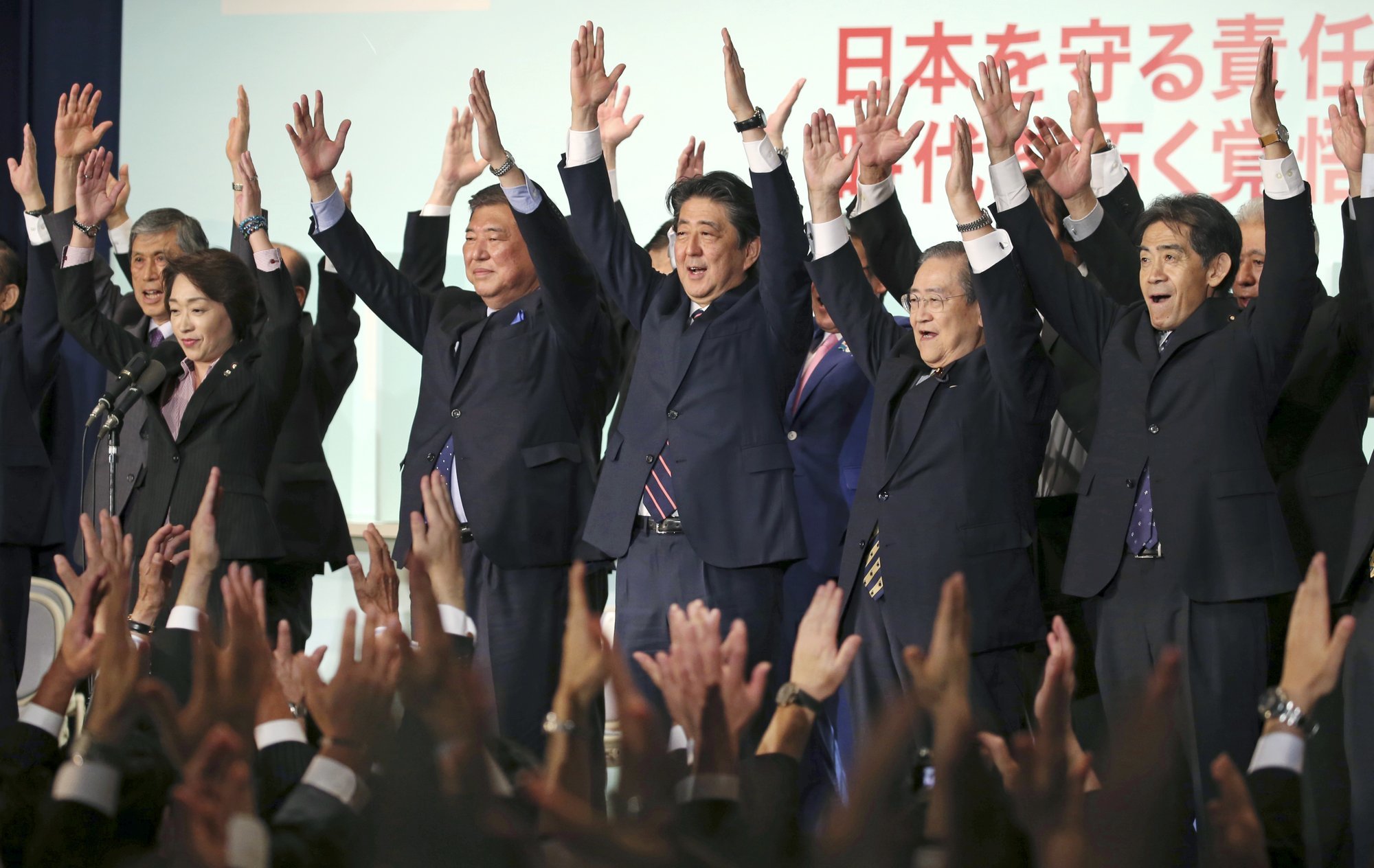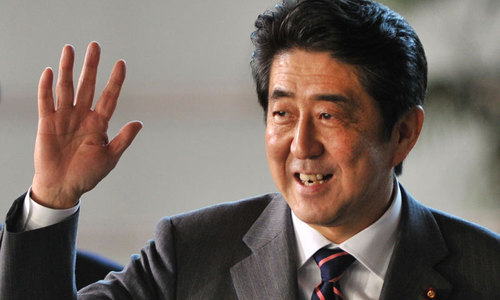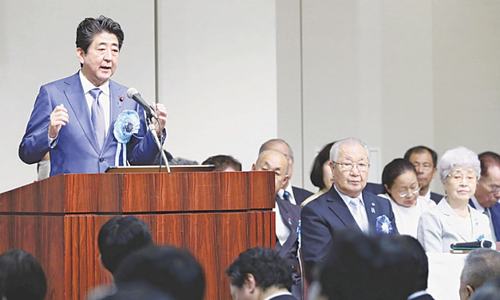Japanese Prime Minister Shinzo Abe was re-elected as head of his ruling Liberal Democratic Party in a landslide on Thursday, paving the way for up to three more years as the nation’s leader.
The decisive victory may embolden Abe to pursue his long-sought revision to Japan’s US-drafted pacifist constitution, although the hurdles remain high and doing so would carry political risks.
“It’s time to tackle a constitutional revision,” Abe said in a victory speech. “Now the fight is over.”
Abe said he’s determined to use his last term to pursue his policy goals to “sum up” Japan’s postwar diplomacy to ensure peace in the country.
“Let’s work together to make a new Japan,” he said.
Abe, who has been prime minister since December 2012, has cemented control of his party and received support from conservatives for bringing stability and continuity to economic and diplomatic policies. With a third term as party leader, Abe is poised to become Japan’s longest-serving leader in August 2021.
Read: Abe's third term: A chance for constitutional change?
In Thursday’s leadership vote, Abe handily defeated his sole challenger, Shigeru Ishiba, a former defense minister. Abe won 553, or about 70 percent, of 807 votes.
Abe took 80 percent of parliamentarian votes, while support from regional rank-and-file party members was at 55 percent, though it fell within projections.
Experts see the margin of victory in regional member votes as a more accurate indicator of general public sentiment than the parliamentarian votes. Abe’s softer showing there means he will have to be more mindful of voices coming from outside parliament.
Abe’s dominance has been bolstered by the strengthening of the Prime Minister’s Office, allowing him and his party executives to monopolize decisions over policies and personnel affairs, experts say. The system has accommodated Abe’s long reign, as many lawmakers are primarily interested in getting Abe and other senior lawmakers’ backing in elections.











































